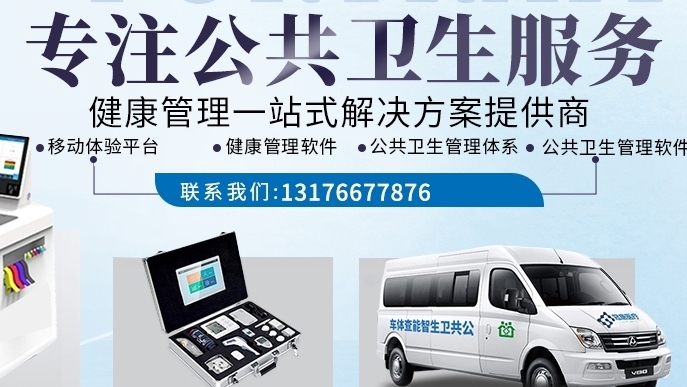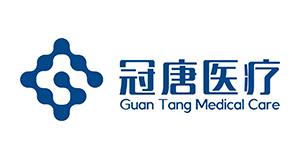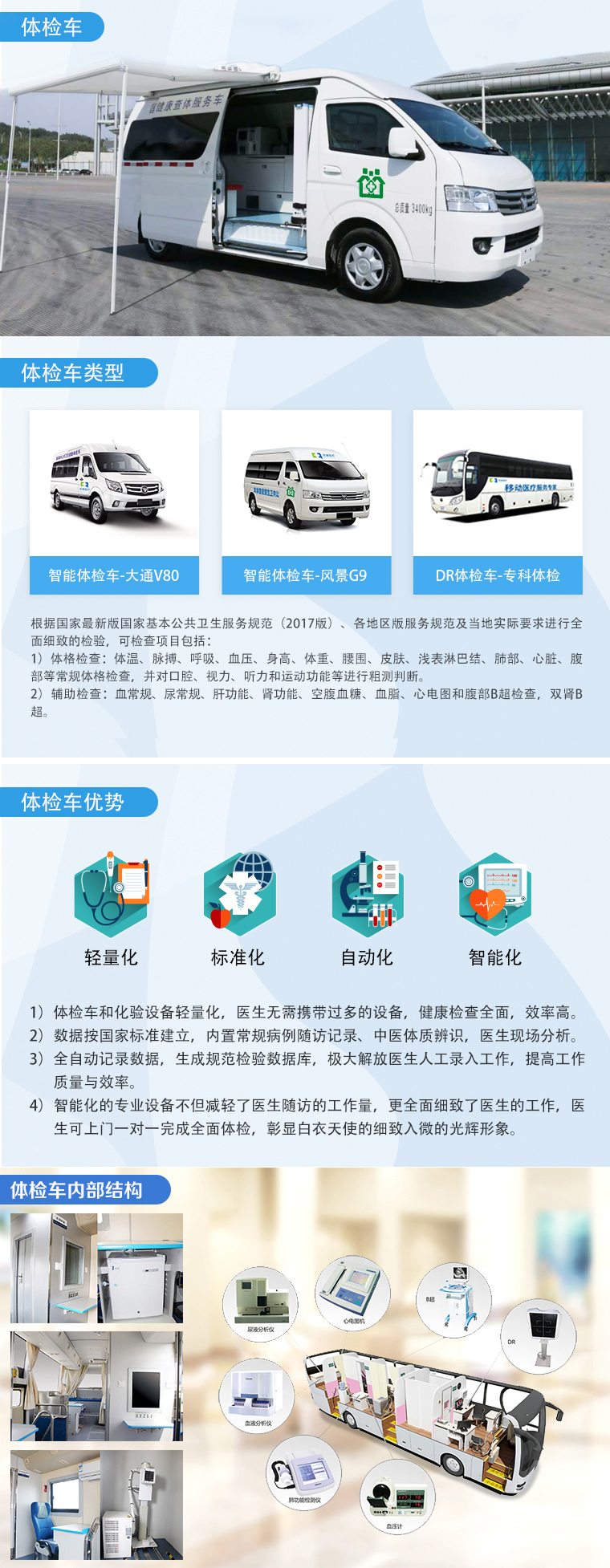實(shí)施案例
產(chǎn)品推薦
新聞推薦
醫(yī)院體檢管理系統(tǒng)日常檢查機(jī)制構(gòu)建指南
- 2025-06-09
- http://m.axilinhaote5.cn/ 原創(chuàng)
- 130
醫(yī)院體檢管理系統(tǒng)的日常檢查是保障體檢質(zhì)量、優(yōu)化服務(wù)流程的核心環(huán)節(jié)。通過信息化手段實(shí)現(xiàn)標(biāo)準(zhǔn)化操作與動(dòng)態(tài)監(jiān)控,可顯著提升體檢中心運(yùn)營效率。以下從系統(tǒng)功能設(shè)計(jì)、操作規(guī)范、質(zhì)控要點(diǎn)三個(gè)維度,解析日常檢查機(jī)制的實(shí)施路徑。
The daily inspection of the hospital physical examination management system is the core link to ensure the quality of physical examinations and optimize service processes. By utilizing information technology to achieve standardized operations and dynamic monitoring, the operational efficiency of physical examination centers can be significantly improved. The implementation path of daily inspection mechanism is analyzed from three dimensions: system function design, operation specifications, and quality control points.
一、系統(tǒng)功能設(shè)計(jì):構(gòu)建智能化檢查框架
1、 System Function Design: Building an Intelligent Inspection Framework
體檢套餐配置模塊
Medical examination package configuration module
支持按年齡、性別、職業(yè)等維度預(yù)設(shè)標(biāo)準(zhǔn)化套餐,如“中老年心腦血管篩查”“職場健康管理”等,每個(gè)套餐包含必檢項(xiàng)與選檢項(xiàng)清單。
Support preset standardized packages based on age, gender, occupation, and other dimensions, such as "middle-aged and elderly cardiovascular screening" and "workplace health management". Each package includes a list of mandatory and optional tests.
允許醫(yī)生根據(jù)個(gè)體差異動(dòng)態(tài)調(diào)整檢查項(xiàng),系統(tǒng)自動(dòng)計(jì)算費(fèi)用并生成電子指引單,減少人工核驗(yàn)錯(cuò)誤。
Allowing doctors to dynamically adjust examination items based on individual differences, the system automatically calculates costs and generates electronic guidance forms, reducing manual verification errors.
設(shè)備狀態(tài)監(jiān)控模塊
Equipment status monitoring module
集成醫(yī)療設(shè)備物聯(lián)網(wǎng)接口,實(shí)時(shí)采集超聲、DR、生化儀等關(guān)鍵設(shè)備的運(yùn)行參數(shù),如探頭溫度、試劑余量、自檢結(jié)果等。
Integrated medical equipment IoT interface, real-time acquisition of ultrasound DR、 The operating parameters of key equipment such as biochemical analyzer, such as probe temperature, reagent remaining amount, self-test results, etc.
設(shè)置閾值預(yù)警機(jī)制,當(dāng)設(shè)備出現(xiàn)故障代碼或性能漂移時(shí),自動(dòng)推送通知至維護(hù)人員終端,并鎖定預(yù)約通道避免誤檢。
Set a threshold warning mechanism to automatically push notifications to maintenance personnel terminals when equipment encounters fault codes or performance drift, and lock the reservation channel to avoid false alarms.
流程質(zhì)控節(jié)點(diǎn)
Process quality control node
在登記、采血、超聲、總檢等環(huán)節(jié)設(shè)置電子簽到點(diǎn),通過人臉識(shí)別或二維碼核驗(yàn)確保受檢者身份真實(shí)性。
Electronic sign in points are set up during registration, blood collection, ultrasound, and general examination to ensure the authenticity of the examinee's identity through facial recognition or QR code verification.
對空腹采血、婦科檢查等特殊項(xiàng)目,系統(tǒng)自動(dòng)校驗(yàn)時(shí)間間隔與禁食狀態(tài),違規(guī)操作觸發(fā)彈窗警告。
For special items such as fasting blood collection and gynecological examinations, the system automatically verifies the time interval and fasting status, and triggers a pop-up warning for violations.
二、日常操作規(guī)范:標(biāo)準(zhǔn)化檢查流程
2、 Daily operation standards: standardized inspection process
體檢前準(zhǔn)備
Preparation before physical examination
設(shè)備校準(zhǔn):每日開機(jī)后運(yùn)行質(zhì)控程序,如生化儀使用標(biāo)準(zhǔn)品進(jìn)行三點(diǎn)定標(biāo),誤差范圍需符合CLIA’88標(biāo)準(zhǔn)。
Equipment calibration: Run the quality control program after daily startup. If the biochemical analyzer uses standard samples for three-point calibration, the error range must comply with CLIA'88 standard.
耗材核查:通過RFID技術(shù)掃描試劑、采血管等耗材批號(hào),自動(dòng)比對有效期與庫存量,缺貨時(shí)啟動(dòng)自動(dòng)補(bǔ)貨流程。
Consumables verification: By using RFID technology to scan the batch numbers of reagents, blood collection tubes, and other consumables, the expiration date and inventory levels are automatically compared. When there is a shortage, the automatic replenishment process is initiated.

體檢中執(zhí)行
Execute during physical examination
動(dòng)態(tài)分流:系統(tǒng)根據(jù)實(shí)時(shí)人流數(shù)據(jù),通過LED屏與語音提示引導(dǎo)受檢者至空閑診室,減少排隊(duì)時(shí)間。
Dynamic triage: The system guides examinees to available consultation rooms through LED screens and voice prompts based on real-time flow data, reducing queuing time.
異常捕獲:對心電圖、血壓等即時(shí)檢測項(xiàng)目,系統(tǒng)自動(dòng)分析波形數(shù)據(jù),識(shí)別ST段抬高、血壓≥180/110mmHg等危急值,立即推送至總檢醫(yī)師工作站。
Abnormal capture: For real-time detection items such as electrocardiogram and blood pressure, the system automatically analyzes waveform data, identifies critical values such as ST segment elevation and blood pressure ≥ 180/110mmHg, and immediately pushes them to the chief examiner workstation.
體檢后處理
Post examination treatment
數(shù)據(jù)復(fù)核:醫(yī)師在系統(tǒng)內(nèi)完成結(jié)果錄入后,需通過“雙簽”機(jī)制由上級(jí)醫(yī)師審核,關(guān)鍵指標(biāo)異常時(shí)強(qiáng)制要求人工復(fù)核。
Data review: After the physician completes the result input in the system, it needs to be reviewed by the superior physician through the "double signature" mechanism. When key indicators are abnormal, manual review is mandatory.
報(bào)告生成:采用NLP技術(shù)解析檢查結(jié)果,自動(dòng)生成“重點(diǎn)指標(biāo)追蹤”“生活方式建議”等模塊,經(jīng)醫(yī)師確認(rèn)后加蓋電子簽名。
Report generation: NLP technology is used to analyze the examination results, automatically generating modules such as "Key Indicator Tracking" and "Lifestyle Suggestions", which are confirmed by physicians and stamped with electronic signatures.
三、質(zhì)量控制要點(diǎn):閉環(huán)式管理體系
3、 Key points of quality control: closed-loop management system
室內(nèi)質(zhì)控管理
Indoor quality control management
每日開展質(zhì)控品檢測,如生化項(xiàng)目使用Levey-Jennings控制圖監(jiān)測CV值,連續(xù)3個(gè)點(diǎn)超限觸發(fā)調(diào)查流程。
Conduct daily quality control testing, such as using Levey Jennings control charts to monitor CV values for biochemical projects, and triggering the investigation process for three consecutive points exceeding the limit.
每月統(tǒng)計(jì)各項(xiàng)目質(zhì)控通過率,對通過率<95%的檢查項(xiàng)暫停開放,直至完成根因分析并整改。
Monthly statistics on the quality control pass rate of each project, suspending the opening of inspection items with pass rates less than 95% until root cause analysis is completed and corrective actions are taken.
室間質(zhì)評參與
Participation in inter room quality evaluation
定期參加國家臨檢中心或第三方機(jī)構(gòu)組織的EQA計(jì)劃,如血常規(guī)、尿常規(guī)等常規(guī)項(xiàng)目,確保檢測結(jié)果可比性。
Regularly participate in EQA programs organized by national clinical testing centers or third-party organizations, such as routine tests such as blood and urine routine, to ensure comparability of test results.
對室間質(zhì)評不合格項(xiàng)目,系統(tǒng)自動(dòng)鎖定相關(guān)設(shè)備與試劑,直至完成偏差調(diào)查與糾正措施驗(yàn)證。
For the unqualified items in the inter room quality evaluation, the system automatically locks the relevant equipment and reagents until the deviation investigation and corrective action verification are completed.
滿意度監(jiān)測
Satisfaction monitoring
通過體檢結(jié)束后的即時(shí)評價(jià)彈窗,收集受檢者對環(huán)境、服務(wù)、時(shí)效的反饋,滿意度<4分(5分制)的項(xiàng)目啟動(dòng)專項(xiàng)改進(jìn)。
Through the instant evaluation pop-up window after the physical examination, collect feedback from the examinee on the environment, service, and timeliness, and initiate special improvements for projects with satisfaction<4 points (on a 5-point scale).
每季度生成質(zhì)控報(bào)告,包含設(shè)備故障率、報(bào)告延遲率、危急值處理時(shí)效等關(guān)鍵指標(biāo),作為管理評審輸入。
Generate quality control reports every quarter, including key indicators such as equipment failure rate, report delay rate, and critical value processing time, as input for management review.
四、特殊場景應(yīng)對機(jī)制
4、 Special scenario response mechanism
危急值管理
Critical value management
定義涵蓋血糖≤2.2mmol/L、血鉀≥6.5mmol/L等20項(xiàng)危急值,系統(tǒng)自動(dòng)識(shí)別并觸發(fā)短信+電話雙通道通知。
The definition covers 20 critical values such as blood glucose ≤ 2.2mmol/L and blood potassium ≥ 6.5mmol/L, and the system automatically recognizes and triggers dual channel notifications via SMS and phone.
建立綠色轉(zhuǎn)診通道,與急診科系統(tǒng)對接,危急值患者30分鐘內(nèi)完成專科會(huì)診。
Establish a green referral channel, connect with the emergency department system, and complete specialized consultations for critically ill patients within 30 minutes.
設(shè)備故障應(yīng)急
Emergency response to equipment malfunction
配置備用設(shè)備池,主設(shè)備故障時(shí)系統(tǒng)自動(dòng)切換至備用機(jī),并重新規(guī)劃后續(xù)受檢者流程。
Configure a backup device pool, where the system automatically switches to the backup machine in the event of a main device failure, and re plans the subsequent process for the examinee.
對無法現(xiàn)場修復(fù)的設(shè)備,啟動(dòng)外部支援流程,系統(tǒng)記錄維修過程與更換部件,確保設(shè)備履歷完整性。
For equipment that cannot be repaired on site, initiate external support processes, record the repair process and replacement parts in the system, and ensure the integrity of the equipment history.
醫(yī)院體檢管理系統(tǒng)的日常檢查需以“預(yù)防為主、閉環(huán)管理”為原則,通過信息化工具將質(zhì)控節(jié)點(diǎn)嵌入業(yè)務(wù)流程。定期分析系統(tǒng)積累的運(yùn)營數(shù)據(jù),如設(shè)備利用率、項(xiàng)目組合偏好等,可反向優(yōu)化資源配置。隨著AI技術(shù)在醫(yī)學(xué)影像中的應(yīng)用,未來體檢系統(tǒng)將實(shí)現(xiàn)更精準(zhǔn)的異常篩查與風(fēng)險(xiǎn)預(yù)警,推動(dòng)體檢服務(wù)向“健康管理”模式升級(jí)。
The daily inspection of the hospital physical examination management system should follow the principle of "prevention first, closed-loop management", and embed quality control nodes into business processes through information tools. Regularly analyzing operational data accumulated by the system, such as equipment utilization and project portfolio preferences, can optimize resource allocation in reverse. With the application of AI technology in medical imaging, future physical examination systems will achieve more accurate anomaly screening and risk warning, promoting the upgrade of physical examination services to a "health management" mode.
本文由醫(yī)院體檢管理系統(tǒng)友情奉獻(xiàn).更多有關(guān)的知識(shí)請點(diǎn)擊:http://m.axilinhaote5.cn我們將會(huì)對您提出的疑問進(jìn)行詳細(xì)的解答,歡迎您登錄網(wǎng)站留言.
This article is a friendly contribution from the occupational disease examination system For more information, please click: http://m.axilinhaote5.cn We will provide detailed answers to your questions. You are welcome to log in to our website and leave a message.




